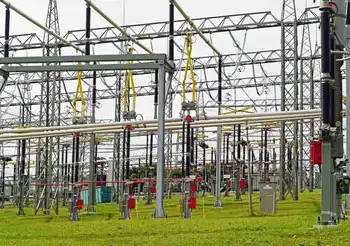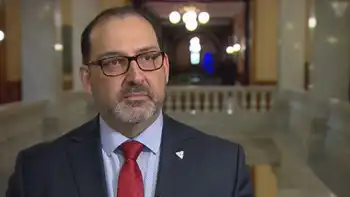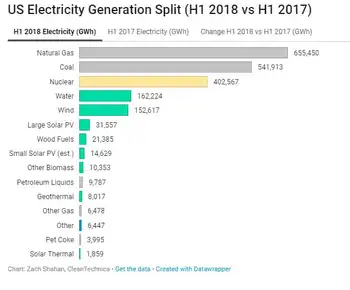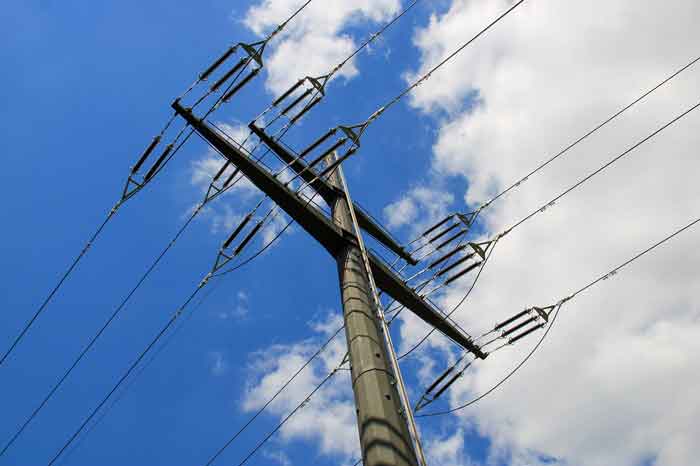B.C. needs big energy changes
By Vancouver Sun
NFPA 70b Training - Electrical Maintenance
Our customized live online or in‑person group training can be delivered to your staff at your location.

- Live Online
- 12 hours Instructor-led
- Group Training Available
This is a good thing. Global warming urgency and the growing energy crisis require communities around the world to debate and develop visions for a green energy future.
Electricity conservation measures, renewable energy projects and carbon pricing are hot topics and necessarily so. But we need public discussion of the big picture, too.
Are we serious about transitioning off fossil fuels? Building a zero carbon economy? And if so, how will we get there? What laws do we need? What technologies need to be deployed?
Some aspects of the vision are clear: We need to stop fossil fuel emissions entirely. Today, three-quarters of B.C.'s energy (for vehicles, heating, industry, electricity) is from greenhouse gas-producing fossil fuels. Less than a quarter is low-GHG hydroelectricity. So the task is enormous. No society of our size has yet accomplished it. But some smaller ones have and many bigger ones are well on their way.
Success stories show that the transition is actually an enormous opportunity. New jobs and economic sectors emerge. Public health improves. Quality of life is generally better and the economy stronger.
How can we make this transition? We have three crucial opportunities: Become more efficient so we use less energy; replace what we do use with carbon-free energy, and phase out emissions from fossil fuels. B.C. has enviable advantages on all three fronts.
Efficiency: We have enormous low-hanging fruit for efficiency and cost-savings. The province has set a worthy goal of meeting more than half of the B.C.'s new electricity demand with efficiency. BC Hydro is increasing its Power Smart program and installing smart meters, and the government has introduced new building codes and standards for vehicles and other products. These are valuable steps but we can do much, much more if we support the initial steps and drive harder.
To do so, all of us must be willing to demand from government (and pay for) things like public transit and two-tiered electricity rates. We will need to demand stronger vehicle standards, accept stricter building codes, and insist on efficiency standards for all energy consuming products.
Conservation and efficiency are some of the quickest gains we can achieve but the spectre of rising prices can always be used by unprincipled politicians to undermine progress. We will need to hold firm to our vision of a green economy.
Renewable Energy: British Columbians are very supportive of green energy although the issue has lately become mired in controversy. But pursuing a green economy requires replacing the three-quarters of our consumption that is fossil-fuelled. Our electric cars are going to have to get juice from somewhere.
Run of river, solar or wind? Tidal, wave, or geothermal? All of these are good options and all need to be pursued at scale. Should we ban renewable energy companies from generating power for BC Hydro as some propose? That would be a major step backward.
Like Ontario, Germany and others, we need all hands on deck: Independent producers, public utilities, first nations, co-ops, homeowners — all regulated to serve the public interest.
Do we need a more structured process? Here is an area where British Columbians should put some pressure on our elected leaders: Renewables need to come on line quickly, and the present approval process was not designed for a large-scale energy transition. We need better assessment of cumulative impacts. We need a more proactive process to outline which areas will be off limits and which will be available for wind farms, run-of-river operations and the smart grid needed to connect them.
Fossil fuels: To wean ourselves from fossil fuel emissions we must have alternatives (efficiency and renewable energy.) And we must progressively restrict emissions to zero — making polluters pay a steadily rising price for damage to our climate is a major requirement. B.C. has the first true carbon tax and helped design the best cap-and-trade system on the continent. No one likes a tax, which is why B.C.'s carbon tax is 100-per-cent revenue neutral, unlike the hidden tax in a cap-and-trade system. Like them or not, we need both systems; they are the gears that drive the transition to the green economy.
U.S. President Barack Obama's administration is projecting billions of dollars in revenue from a carbon cap system which will be put towards renewable energy and middle class tax cuts. The American system will penalize trade from jurisdictions with less stringent carbon restrictions. B.C. has led on this front so far, but we will need to dial up our efforts to keep up with the rest of the world.
The crisis of global warming is an opportunity for those with the vision to seize it. A new generation of green jobs and a green economy are within our grasp.











